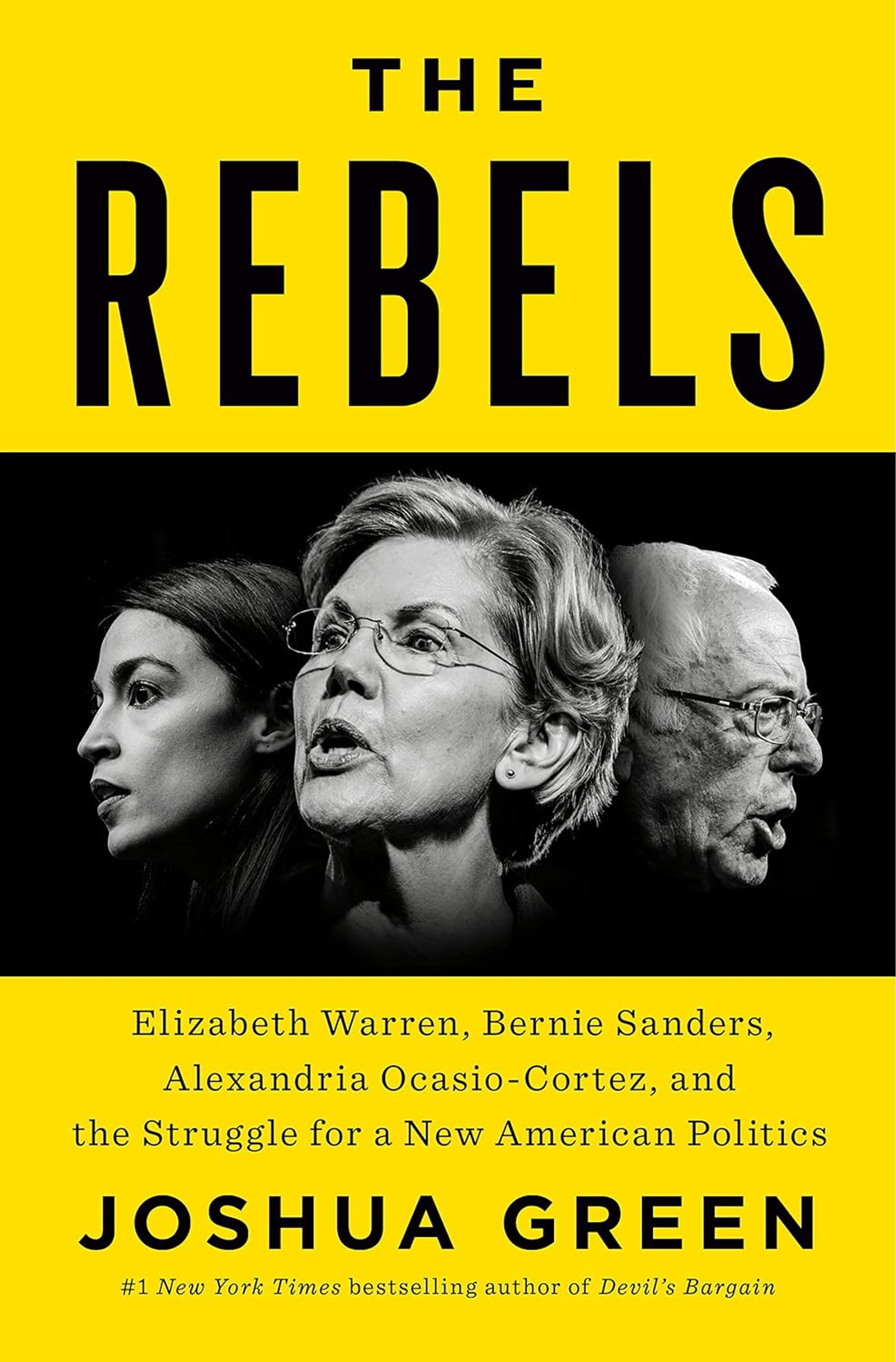The Provocation
Is Joe Biden pro-market? Pro-labor? What does building an economy, as he likes to say, “from the middle out and the bottom up” really mean? Didn’t Biden support the credit card industry against struggling households on gutting bankruptcy protections when in the Senate? Is he an Obama-ite neoliberal, or a Warren-ite populist? When it comes to economics, what is Joe Biden’s North Star?
These questions aren’t as simple to answer as they used to be. A few decades ago, the lines were drawn along simple partisan lines. Democrats generally stood for working people, labor, and regulations that protected the environment and promoted the interests of the American middle class and those lower down the socioeconomic ladder. Republicans generally favored more laissez-faire, invisible-hand capitalism and celebrated the crushing discipline of unfettered global capital flows and trade — even if the other countries were dumping products, protecting their markets, and just downright cheating.
In 1996, then-Fed Chairman Alan Greenspan told me that he saw his and the role of other global captains of finance as increasing the speed by which capital flowed and moved through the world. I asked him whether the analogy for the increasing velocity of finance might be more truck and car crash victims as highway speeds increased. He responded that the market rewards and punishes, and governments will tend to the needs of victims. This was before America’s tech bubble burst two decades ago, and before the systemic corruption in mortgage products led to a global economic subprime lending heart attack in 2008-2009.
What followed the simple partisan divisions of the 1970s was a more complex ideological battle inside and around the White House between competing schools of thought on how to run and manage an economy. The neoliberal economic school would aim to grow the global economic pie, reject sanctions, and celebrate offshoring. The other would focus on protecting victims of economic growth and turbulence, favor trade protections and tightly-enforced rules, and devote more concern to microeconomic impacts and outcomes.
It’s surprisingly hard to figure out where in this tug of war Joe Biden and his brain trust placed themselves. When Biden was a senator from Delaware, the credit card capital of the world, he was the most consequential force in neutralizing critical bankruptcy protections. Biden supported the creation of the World Trade Organization, voted for numerous key trade deals, particularly voting in favor of “permanent normal trade relations” with China. Biden was for the Trans-Pacific Partnership, or TPP, before he was against it.
But the new Joe Biden is no Barack Obama, who ranks up near former President Bill Clinton as one of America’s most neoliberal presidents. When Barack Obama and his Treasury Secretary Tim Geithner bailed out the bottom lines of banks and financial institutions, they ignored millions of Americans who were drowning in underwater mortgages in the 2008-2009 financial crisis. Biden’s economic adviser then, Jared Bernstein, argued around tables in the Roosevelt Room of the White House for more direct assistance for struggling Americans and much more investment in infrastructure projects around the nation. Bernstein was a lone voice among Obama’s advisors, who were mostly calling for a bank-centric bailout plan that failed to punish these banks for the nightmares they unleashed. (One of the grim statistics of this period was that more than 5,000 finance industry employees at bailed out institutions had million-dollar or more bonuses just one year after a financial crisis their firms had been complicit in. Americans losing their homes, seeing their savings squashed, and otherwise footing the bill for one of the biggest corporate giveaways of all times rightfully seethed.)
These divisions are now more openly fought within the Democratic Party. And Bloomberg Business correspondent Joshua Green’s new book — The Rebels: Elizabeth Warren, Bernie Sanders, Alexandria Ocasio-Cortez, and the Struggle for American Politics — chronicles the incremental capture of the Democratic Party by Wall Street financiers who successfully pushed for dismantlement of the national and global financial markets regulatory order. The 2008-09 financial crisis, and their response, created ripe terrain for an academic on a mission, Elizabeth Warren, and her ideological allies Bernie Sanders and AOC.

Green’s book offers a smooth narrative on how the Democrats eager to respond to the massive popularity of Ronald Reagan and collapse of Jimmy Carter economic policies became champions of “capital formation” lingo and began to smooth the way for the rise of financial interests over worker interests as dollars flowed into Democratic campaigns from financial firms and private equity investors. During the Clinton administration, the successful economic gladiator was Robert Rubin, a Democrat from Goldman Sachs, whose neoliberal economic arguments persuaded Clinton to ignore Harvard academic Robert Reich, who was arguing for the working person’s interests as Secretary of Labor. Glass-Steagall, a key post-depression banking reform, was dismantled with Democrats playing the leading role in the law’s demise, and millions of Americans overnight became more vulnerable to an economic marketplace that was exploiting them and shoving more of the growth and gains of the economy into the asset base of America’s richest citizens.
Green’s book reminded me of the whole alternate universe of Democrats, writers and think tank policy wonks who tried to wave warning flags about the creeping financial sector takeover of the party before the financial crises of the early 2000s. Many don’t make Green’s narrative, but they include Lori Wallach of Public Citizen who became the trade industry’s chief gadfly. There was Clyde Prestowitz of the Economic Strategy Institute who warned against China/PNTR and argued against manic neoliberal globalization, as he did battle with C. Fred Bergsten and Gary Hufbauer of the Institute for International Economics, then the home of the “Washington Consensus” on neoliberal trade and finance policies. There was Sen. Jeff Bingaman, for whom I worked, who saw labor being left behind as tech-empowered firms were growing like weeds and workers in Las Cruces were all of a sudden vulnerable to an emerging Chinese manufacturing juggernaut. Bingaman had his staff, including me, draft a report titled “Scrambling to Pay the Bills: How to Help American Workers Compete in a Turbo-Charged Economy,” that offered 80 or so different economic proposals to promote investment in the education benefits, health care and pensions of workers in a way that would help that be as nimble as other factors in the economy, particularly capital. Writers like Robert Kuttner and William Greider rang the alarm bells.
But what Green outlines brilliantly is the origin story of Warren and her successors, essentially emerging as one of the leading national experts on personal bankruptcies, the terrain Biden’s actions had helped worsen. She became obsessed with the dearth of consumer protections particularly after the crushing impacts of the 2008-2009 financial crisis. She helped outline and launch the Consumer Financial Protection Bureau that Barack Obama wouldn’t allow her to lead, and this act, combined with rising frustrations of Americans who felt like they were being screwed as banks were golden, fueled a Neo-populism in the Democratic Party that subsequently gave lift to Sen. Bernie Sanders and the mesmerizing AOC. The same forces, Green writes, resulted in a populist Republican pro-worker Donald Trump beating Hillary Clinton, who many saw as captured by the neoliberal New York finance crowd.
Now President Biden may have come full circle. He started his career as Scranton Joe, someone who constantly spoke to the plight and challenges of working class families — only to help put in place policies that increased their vulnerabilities to credit card firms, Chinese manufacturers, and policies that tended to undermine them and make America’s top 1% richer. Biden is now on a different course, one more in line with Democrats of yesteryear, even as his party (ironically) becomes more and more associated with upper middle-class voters in booming suburbs.
The $1.9 trillion American Recovery Act, the bipartisan infrastructure spending bill, a new phase of American industrial policy — these are not neoliberal policies. And the chief anti-neoliberal economic voice during Obama’s tenure, Jared Bernstein, is now Biden’s Chairman of the Council of Economic Advisors.
Biden’s challenge right now is that many Americans feel that Donald Trump is agitating for them: Protecting them from a storm of immigration from America’s southern border, railing against trade deals, publicly arguing for preserving Medicare and Social Security at current levels. Biden’s investments and reforms are more substantial in the long run — but many Americans don’t feel Biden and the Democratic Party’s new focus on them. They are still irritated by the cost of eggs and milk and the hits from inflation the family pocketbook took the last two years.
What is certain is that the era of neoliberal economics has been buried in both parties, or at least pushed to deep subterranean levels — a clear victory for the voices Green explores, Sanders and Warren and AOC.
